What to watch for in Trump's first State of the Union
With Congress, senior foreign diplomats and a global audience looking on, the president of the United States faced the packed House of Representatives chamber and called for an end to the investigation targeting him.
“I have provided to the special prosecutor voluntarily a great deal of material. I believe that I have provided all the material that he needs to conclude his investigations and to proceed to prosecute the guilty and to clear the innocent,” the president said. “I believe the time has come to bring that investigation and the other investigations of this matter to an end. One year of Watergate is enough.”
The speaker was Richard Nixon, delivering the annual State of the Union speech in January 1974 — not quite eight months before he resigned ahead of almost certain impeachment.
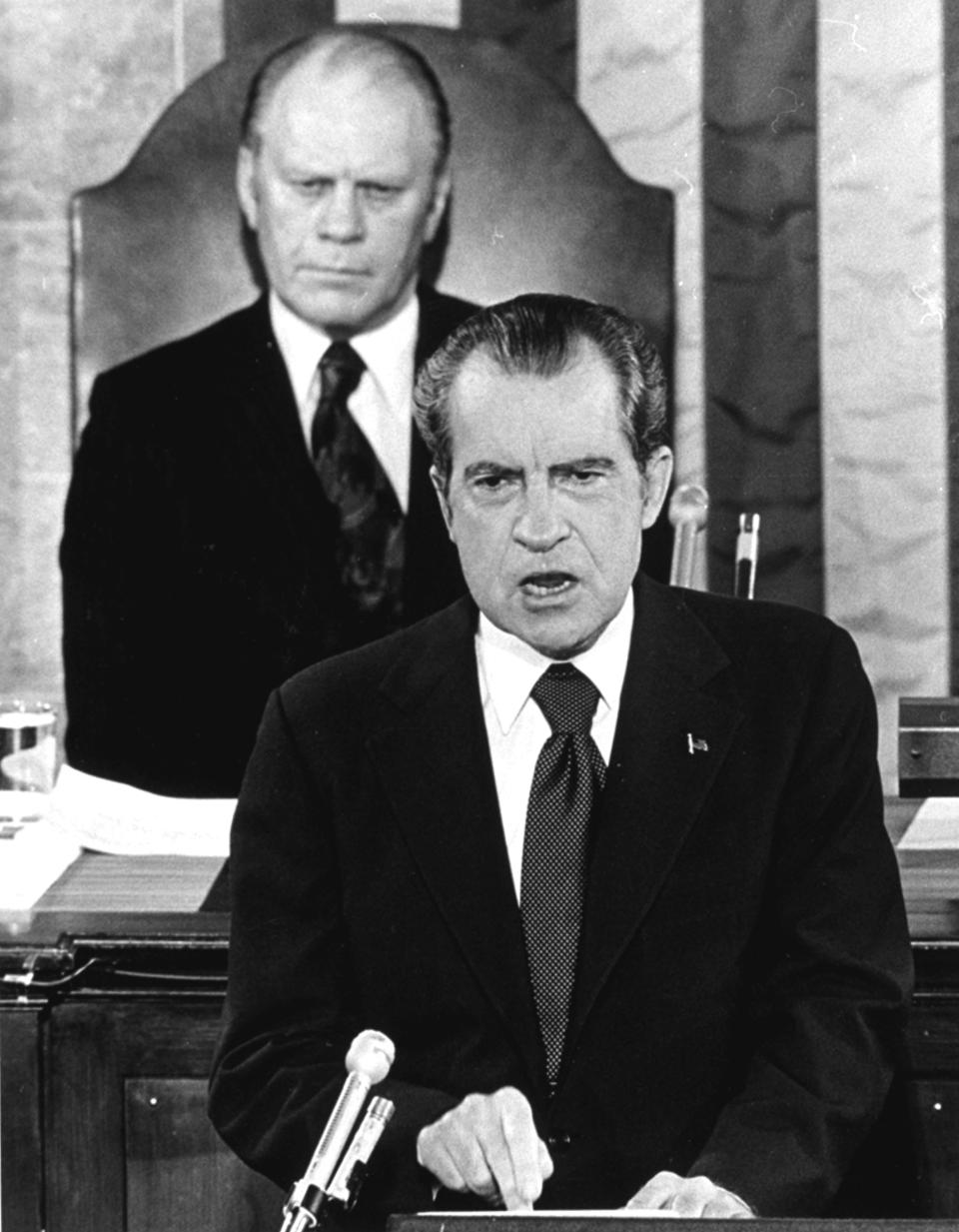
As President Trump prepares to give his first formal State of the Union speech on Tuesday, it’s unclear whether he will mention former FBI director Robert Mueller’s investigation into the 2016 campaign. If he chooses not to confront the issue in this setting, Trump would be following the example of Bill Clinton, who made no mention of the investigation by independent counsel Ken Starr into his relationship with former intern Monica Lewinsky in his State of the Union speeches in 1998, 1999 and 2000.
Whether or not Trump trains his fire on Mueller is just one of many things to watch for in the speech. The yearly remarks also provide an unparalleled forum for Trump to boast of what he views as the biggest victories of his young presidency, as well as lay out his agenda going forward and kick off a year of politicking ahead of the November 2018 midterm elections.
Behind the scenes, the speech can be an ordeal for the president’s writers. Nixon’s 1970 State of the Union took shape during a sleepless three-day blitz powered by “greenies,” amphetamines prescribed by the White House doctor. Heroic caffeine intake is more the modern norm.
Trump spoke to a joint session of the Senate and House of Representatives on Feb. 28, 2017. But those remarks were not technically a State of the Union address, which by tradition takes place each January except in the first year of a new president’s term.
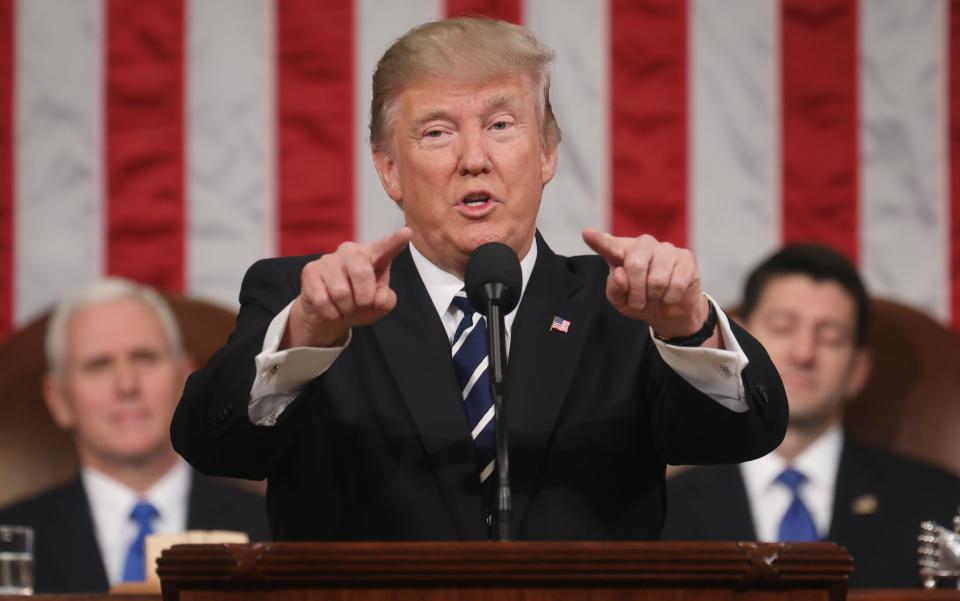
Article II, Section 3 of the Constitution says that the president “shall from time to time give to the Congress Information of the State of the Union, and recommend to their Consideration such Measures as he shall judge necessary and expedient.” It doesn’t specify that he should do so in a primetime TV speech sometimes lampooned as “I come to you tonight to speak in ringing tones and gaze into the middle distance.”
George Washington delivered his in person, a tradition that largely lapsed until Woodrow Wilson brought it back in 1913. Calvin Coolidge gave the first one broadcast on the radio, in 1923. Harry Truman’s 1947 speech was the first on TV. The first live webcast was George W. Bush’s 2002 address. (Washington also holds the record for the shortest spoken State of the Union, at 1,089 words, in 1790. Clinton gave the longest, at 9,190 words, in 1995).
In addition to the Mueller question, here are other things to watch for in Trump’s speech, which the White House says is titled “Building a Safe, Strong, and Proud America.”
What’s the boast-to-plan ratio?

Trump is sure to highlight what he regards as his administration’s first-year triumphs. He’ll take credit for the growing U.S. economy, the booming stock market and the Republican tax overhaul that is leaving more money in many American paychecks. He’ll underline that American-led forces have routed the so-called Islamic State. He’ll invite conservatives to celebrate his judicial appointments. He may underline that he signed the undoing of Obamacare’s mandate that individuals purchase health insurance or pay a fine. It would not be out of character for him to recall his 2016 election victory.
But the president will also want to shine a spotlight on his agenda — including hard-line proposals on immigration, a potential infrastructure plan or pushing for new sanctions on Iran. Amid signs that his administration is taking a newly tough line on trade with China, Trump could announce new steps to punish Beijing. And he could press world leaders to step up enforcement of sanctions against North Korea.
That doesn’t mean lawmakers will act on any of it. Some presidents have made dramatic appeals that win applause from the audience, only to collect cobwebs in Congress — like a return to the moon by 2020 to set up a manned mission to Mars, a plank of George W. Bush’s address in 2004.
A senior administration official, briefing reporters on condition he not be named, said last week that the five themes in the speech would be: the economy, infrastructure, immigration, trade and national security.
Some notable past State of the Union policy moments include James Monroe announcing the Monroe Doctrine in 1823 and George W. Bush promising action in 2002 against an “axis of evil” encompassing Iran, Iraq and North Korea.
How effective will the Skutniks be?
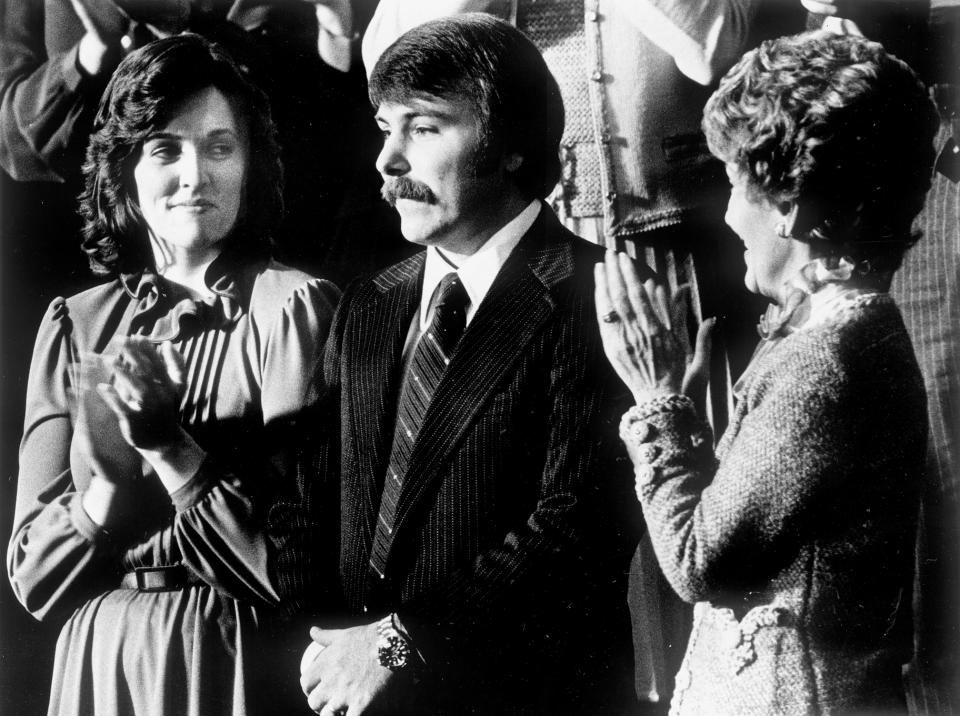
Ronald Reagan transformed the State of the Union in one important way. Reagan’s 1982 address came two weeks after an airliner crashed into the icy Potomac River. The president gave one of the heroes to emerge from the tragedy, Lenny Skutnik, a seat in the gallery overlooking the chamber and paid tribute to him in his remarks.
Since then, presidents — and, increasingly, lawmakers — have invited people they can use to make a point. In D.C. jargon, they’re known as Skutniks.
These guests can lend emotional punch to a president’s words. When Trump addressed Congress last year, the entire chamber came to its feet when he pointed out Carryn Owens, the widow of a Navy SEAL killed in Yemen. The standing ovation provided one of the most memorable moments of his remarks.
On Monday, White House press secretary Sarah Sanders told reporters that the current crop of guests would include an Ohio welder; two couples whose daughters were killed by members of the MS-13 gang, which consists mostly of immigrants from Central America; a Marine corporal badly wounded in Iraq; Americans involved in disaster relief in last year’s hurricane season; a New Mexico police officer; a government investigator whose work led to arrests of MS-13 gang members; a serviceman who took part in the war on ISIS; an activist who puts flags and red carnations on soldiers’ graves; and a brother-and-sister team of business owners who say their workers received larger Christmas bonuses because of the Republican tax cut law.
How will Democrats respond?
The Democratic base doesn’t want the party’s elected leaders to cooperate with Trump on issues like immigration. Whether they can find common ground with the president on infrastructure or trade — the party’s left is also inclined to try to protect besieged U.S. industries — remains to be seen.
And then there’s the question of vulnerable Democratic senators in states where Trump won: Will they decide that the electoral math in their states compels them to edge closer to Trump? Or would that only drive off the Democratic base voters they need to win?
Will there be hecklers?
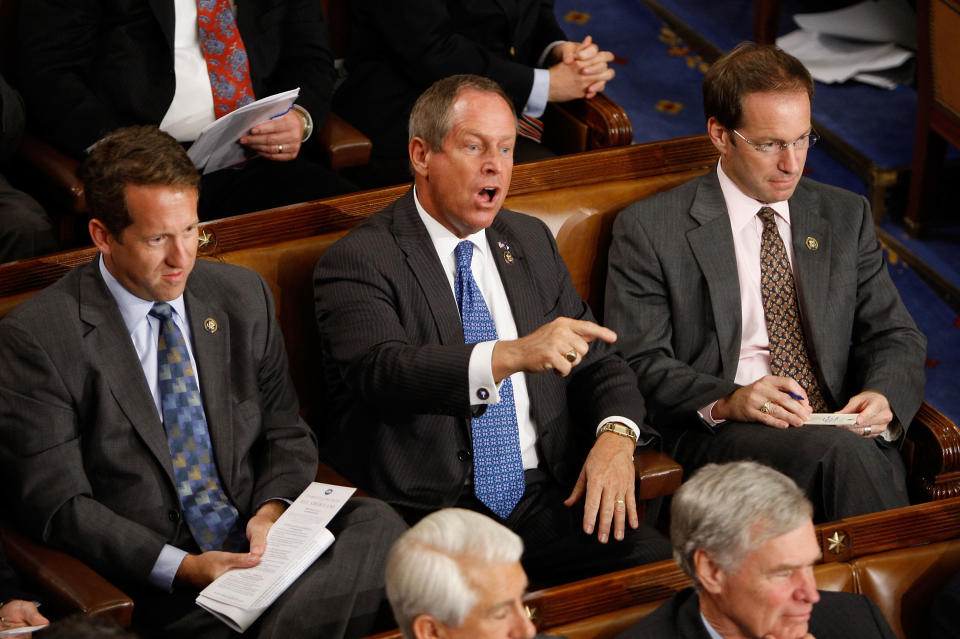
Apart from Skutniks, lawmakers can send other quiet signals. They sit on their hands to show disapproval, or sit with a member of the opposing party to suggest bipartisanship — a gesture that is the political equivalent of a comb-over, in that it looks weird and fools no one.
But things aren’t always quiet in the chamber. When President Barack Obama addressed a joint session of Congress on health care in September 2009, Republican Rep. Joe Wilson of South Carolina interrupted a section on immigrants by twice shouting “You lie!” Wilson later apologized, but the Democrat-held House voted to reprimand him.
Will Trump follow talk with action?
The aftermath of the speech matters as much as what the president says in the chamber. Will the president crisscross the country in favor of his favored initiatives? That sort of travel would double as pre-midterm campaigning. How much work is he prepared to do to advance his legislative proposals?
“And how quickly will he ruin the mood with a bad tweet?” a senior House Republican aide remarked to Yahoo News. The aide requested anonymity to avoid reprisals from the White House.
Presidents have historically not seen much of a public opinion boost from the speech — it’s not a way to pivot or to reset a troubled presidency. And Trump’s approval ratings have tended to tick upwards when he is out of the public eye and his fingers aren’t tweeting.
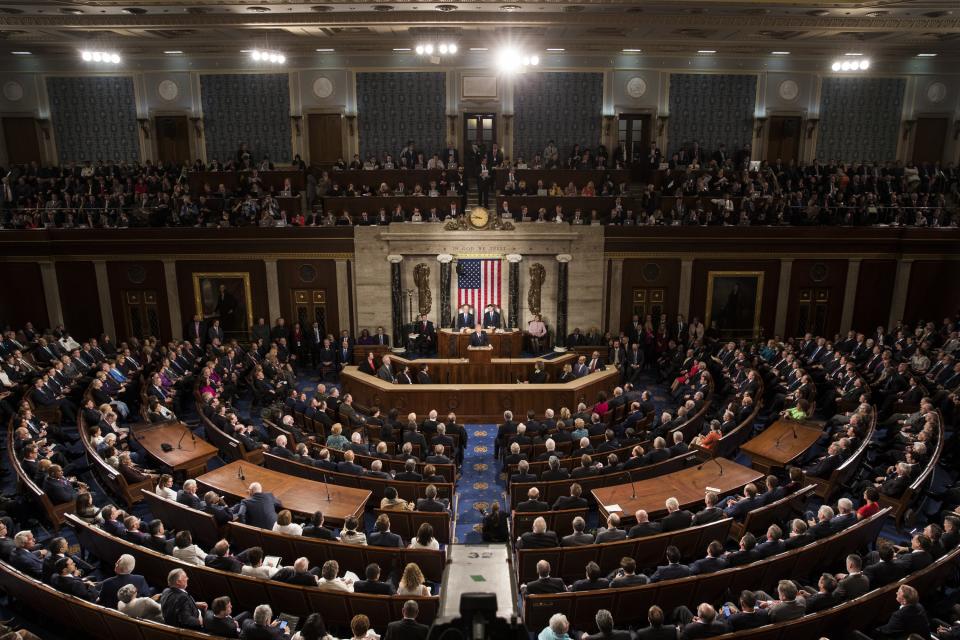
But because this gives him what is likely to be his largest audience of the year, the pressure is on to stick to the script and make the most of his agenda-setting opportunity.
As of a few days ago, Vice President Mike Pence had about 30 events on his calendar for House, Senate and gubernatorial candidates in 2018. Will the president match that level of energy?
The success of Trump’s legislative agenda may depend on it. And depending on what (if anything) Mueller unearths, keeping Democrats from retaking the House may prove key to saving his presidency.
_____
Read more from Yahoo News:



